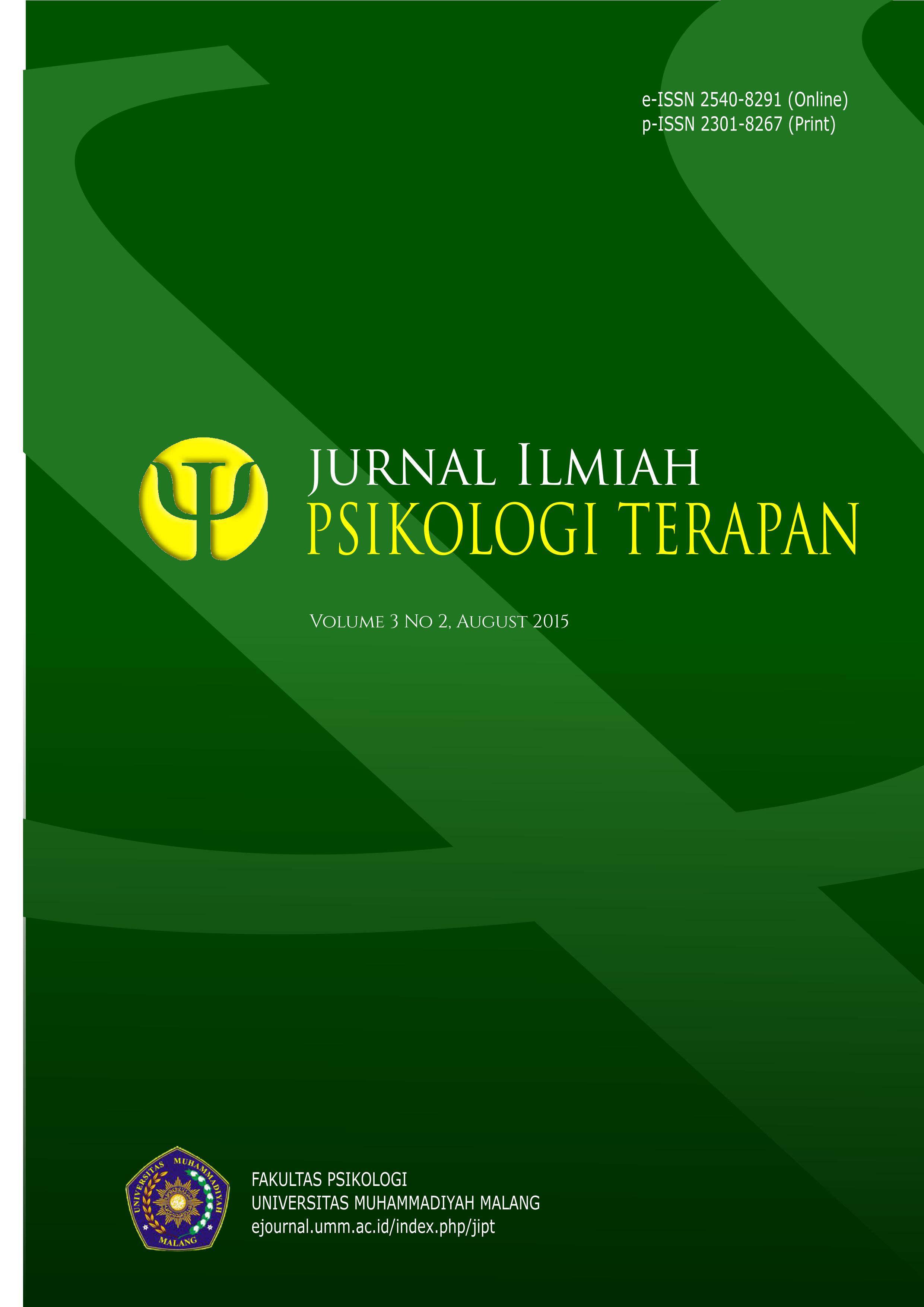INTENSI MENCONTEK DITINJAU DARI THEORY OF PLANNED BEHAVIOR
DOI:
https://doi.org/10.22219/jipt.v3i2.3531Keywords:
Theory of planned behavior, cheating intentionAbstract
Perilaku mencontek masih saja dilakukan oleh para pelajar di Indonesia, dari SD sampai perguruan tinggi bahkan kalangan masyarakat umum pun juga ada yang melakukannya. Theory of planned behavior dapat digunakan untuk mengidentifikasi perilaku mencontek. Tujuan dari penelitian ini adalah untuk mengidentifikasi intensi mencontek dengan menggunakan TPB. Desain yang digunakan kuantitatif prediktif dengan menggunakan skala TPB dan skala intensi mencontek. Jumlah subjek sebanyak 211 orang, teknik yang digunakan dalam pengambilan sample adalah cluster sampling. Hasil penelitian menunjukkan ada pengaruh yang positif dan signifikan antara TPB dengan intensi mencontek, dan menunjukkan bahwa TPB dapat digunakan untuk memprediksi intensi mencontek (R = 0.57 ; P = 0.000), dengan kontribusi yang diberikan oleh komponen sikap sebesar 0.327 β (23.5%), norma subjektif sebesar 0.321 β (21.8%), dan kontrol perilaku yang dirasakan sebesar 0.220 β (11.7%).
Kata kunci : Theory of planned behavior, intensi mencontek
Cheating is like a behavior for Indonesian students. It starts from elementary school’s students even university students. Unfortunately, this behavior is also followed by the society. The Theory of Planned Behavior (TPB) constitutes to be the best solution to deal with this problem. Furthermore, this theory aims to identify cheating behaviors. Specifically, the goal of this research is to identify the intention of cheating behavior using TPB. It used predictive quantitative approach by implementing TPB scale and cheating intention scale as well. Additionally, the subjects of this research are chosen using cluster sampling and it resulted 211 people to be observed. Also, the result of this research shows that there is a positive and significant influence among TPB and cheating intention. From the data, the researcher concludes that the value of R is 0.57 (57%) while P is 0.000. Still the contribution that are given by the components are 0.327 β (23.5%), subjective norm is 0.321 β (21.8%), and controlled behavior got constitutes to be 0.220 β (11.7%).
Keywords: Theory of planned behavior, cheating intention
Downloads
Downloads
Published
How to Cite
Issue
Section
License
Authors who publish with Jurnal Ilmiah Psikologi Terapan agree to the following terms:
- For all articles published in Jurnal Ilmiah Psikologi Terapan, copyright is retained by the authors. Authors give permission to the publisher to announce the work with conditions. When the manuscript is accepted for publication, the authors agree to automatic transfer of the publishing right to the publisher.
- Authors retain copyright and grant the journal right of first publication with the work simultaneously licensed under a Creative Commons Attribution-ShareAlike 4.0 International License that allows others to share the work with an acknowledgment of the work's authorship and initial publication in this journal.
- Authors are able to enter into separate, additional contractual arrangements for the non-exclusive distribution of the journal's published version of the work (e.g., post it to an institutional repository or publish it in a book), with an acknowledgment of its initial publication in this journal.
- Authors are permitted and encouraged to post their work online (e.g., in institutional repositories or on their website) prior to and during the submission process, as it can lead to productive exchanges, as well as earlier and greater citation of published work (See The Effect of Open Access).

This work is licensed under a Creative Commons Attribution-ShareAlike 4.0 International License.











